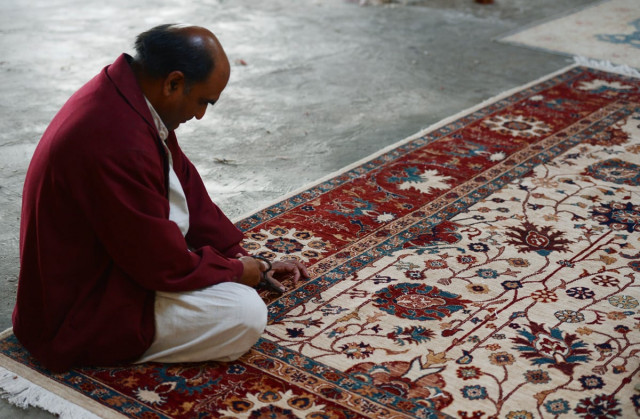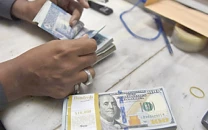In trouble: A once-flying carpet industry faces crash
Rug exports have fallen 60% to $130 million in the last decade.

In trouble: A once-flying carpet industry faces crash
The once-booming carpet industry has taken a nosedive in the last one decade. As regional players take giant leaps and capture world markets, Pakistan’s exports of rugs have been constantly declining, falling below $130 million per year.
In the past decade, exports came down 60% as a huge potential remained untapped because of a lack of support from the government, industry people say.
In comparison, India’s carpet exports have shown a phenomenal growth. A decade ago, India and Pakistan had annual rug exports of roughly $350 million and now Indian shipments have reached $1 billion.
While most countries have adopted modern methods of manufacturing, the carpet and rug makers in Pakistan still operate like a cottage industry. Rugs are made at home in rural areas and thousands of people rely on this profession.
“It is the small-scale factories in rural areas that give a vital boost to the industry,” said an expert.
Many families bank on rug manufacturing as the sole source of income. A single piece of rug requires six months to a year’s labour.
The small-scale industry is mostly dominated by women who make carpets at home. “These traditional workers lack proper training and require financing to complete the supply chain,” the expert added.
According to industry experts and exporters, there is an absence of research and development institutes in the country that could work to strengthen the sector. The largest buyers of Pakistan’s hand-knotted rugs are the United States and Europe.
“A few years ago, China and Turkey were the leading exporters, but their industries were wiped out due to expensive labour,” said Usman Ghani, Chairman of Pakistan Carpet Manufacturers and Exporters Association (PCMEA), while talking to The Express Tribune. “Now, China has become a big importer of rugs.”
Pakistan should explore new markets for rug exports including China where the demand was quite high, said Ghani, who is also the chief executive officer of Prince Rug Palace Private Limited.
Rug exporters have met government officials a number of times, seeking state support for including rug in the Free Trade Agreement (FTA), but to no avail.
“Machine-made carpets are in the FTA list and we have asked the government several times to add handmade rugs as well.”
Ghani added any relief provided by the government would help revive the ailing industry and create employment opportunities.
He stressed that global recession and declining exports necessitated concessions and incentives for the industry like credit financing and bank loans. “The carpet industry could be one of the main exporters of the country,” he remarked.
He also suggested that the government should hold exhibitions for the promotion of the country’s products.
Published in The Express Tribune, November 26th, 2014.
Like Business on Facebook, follow @TribuneBiz on Twitter to stay informed and join in the conversation.



















COMMENTS
Comments are moderated and generally will be posted if they are on-topic and not abusive.
For more information, please see our Comments FAQ